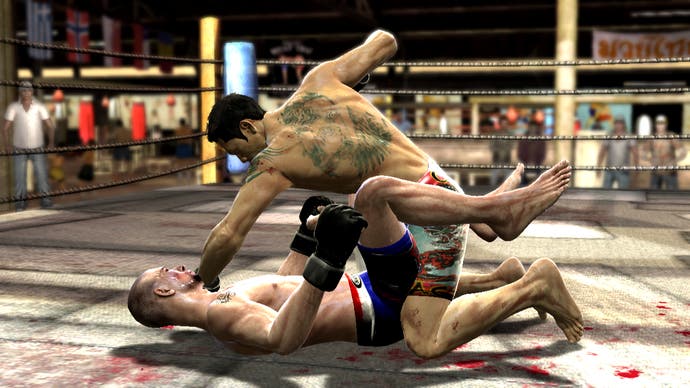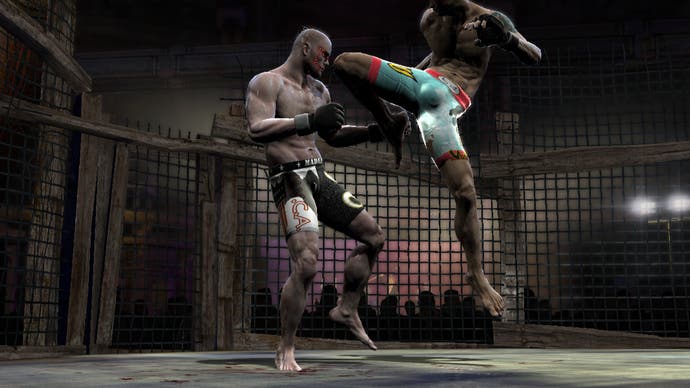MMA Supremacy
Shove affair.
The line between fighting sim and arcade fighter is easy to discern. In the red corner you have the Street Fighters and the Tekkens, with their hadoukens and golems. In the blue corner you'll find the realistic mix of manoeuvres and physics boasted by the Fight Nights and the Undisputed. There's rarely any crossover.
But here comes MMA Supremacy, looking to step right over that line. The game is based around the world of mixed martial arts, and features an underground style which opposes the televisual tailoring of the UFC. However, it also takes clear inspiration from the school of arcade fighters.
This makes for an intriguing juxtaposition. While the combatants throw strikes and attempt submissions in ways which mimic reality, they also dance to the beat of an adrenaline gauge in the shape of a spinal cord.

But to ponder over where Supremacy sits on the sliding scale of simulation would be missing the point. Although Kung Fu Factory wants to make an MMA fighter that's more accessible than its most obvious competitors, it also wants to inject the sport with a bit of character. Because if there's one common hallmark of simulations, it's their tendency to feel somewhat clinical and sterile.
Kung Fu Factory's creative director, Ricci Rukavina, is keen to avoid this when it comes to MMA Supremacy. His development team has a collective portfolio which stretches from the original Ultimate Fighting Championship on the Dreamcast to this generation's highly acclaimed UFC Undisputed 2009. With that kind of pedigree backing him up, it sounds like he's in with a shot.
But it's the involvement of former UFC Lightweigh Champion Jens Pulver which could have the most significant influence. Pulver began fighting in the UFC way back in 1999 and became known by the name Lil' Evil. He won the Lightweight Championship in 2001 and went on to defend the title twice.

The second time he was fighting against the now legendary B.J. Penn – a man who knocked out his first three UFC opponents in the first round. But when Penn finally faced off against Pulver in the Octagon, he lost to a majority decision after being forced to battle through all five championship rounds.
Pulver then relinquished his title and left the UFC to fight for other promotions, including Pride and World Extreme Cagefighting. But six consecutive losses since 2008 have damaged his once prestigious reputation.
However, the MMA Supremacy team remain some of Pulver's biggest fans. They spent time with him during the course of their research and took his tale of unwavering determination to heart. According to Rukavina this helped the studio devise the Road to Supremacy – a story-driven concept which focuses on a fighter's motivations. For some, it seems, it isn't just about the fame and money.


.png?width=291&height=164&fit=crop&quality=80&format=jpg&auto=webp)




.jpg?width=291&height=164&fit=crop&quality=80&format=jpg&auto=webp)
